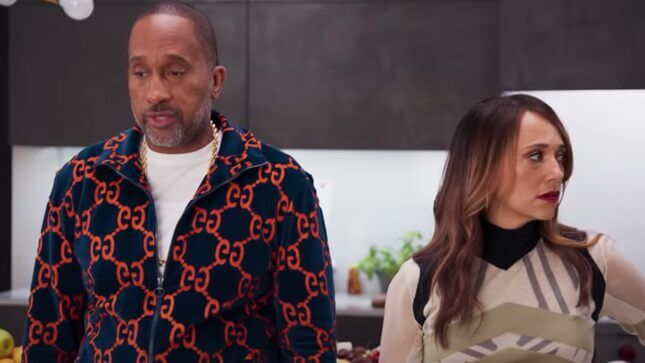

Kenya Barris just might be the best confidence man in Hollywood. With the debut of his first Netflix show BlackAF, Barris has managed to earn millions more dollars quadruple-dipping into his limited storytelling well. But after the fourth time around the playground, it seems he’s running out of steam.
To be fair, BlackAF is nowhere near the worst show you’ll ever see. At points, it’s quite funny, and very often it’s almost charming, but most of that work is fastidiously undone by Barris’s performance as an exaggerated version of himself. This character, of course, already exists—he’s currently being depicted by Anthony Anderson as Andre Johnson on ABC’s hit show Black-ish. But in this realer, “blacker” version, Barris’s id is all misery and self-loathing—and somehow, the audience is meant to understand this as a perverse form of radical honesty.
Barris depicts himself as a man who essentially hates his family. He is at once striving for their recognition and approval and also resentful that he cares to have it. He is routinely unkind to and dismissive of his wife Joya (Rashida Jones in the best role she’s had in ages) and constantly insinuates that she is ungrateful for the life he has provided them. His oldest son Pops (Justin Claiborne) is subject to the same emotional abuse Andre doles out to Junior on Blackish, and he spends the vast majority of the first two episodes aggressively slut-shaming his eldest daughter Chloe (Genneya Walton). Barris’s conception of himself is that he is an underappreciated genius who cannot get those around him to recognize his superiority. As the youth say, “it’s not a good look.”
-

-

-

-

-

-

-

-

-

-

-

-

-

-

-

-

-

-

-

-

-

-

-

-

-

-

-

-

-

-

-

-

-

-

-

-

-

-

-

-








































